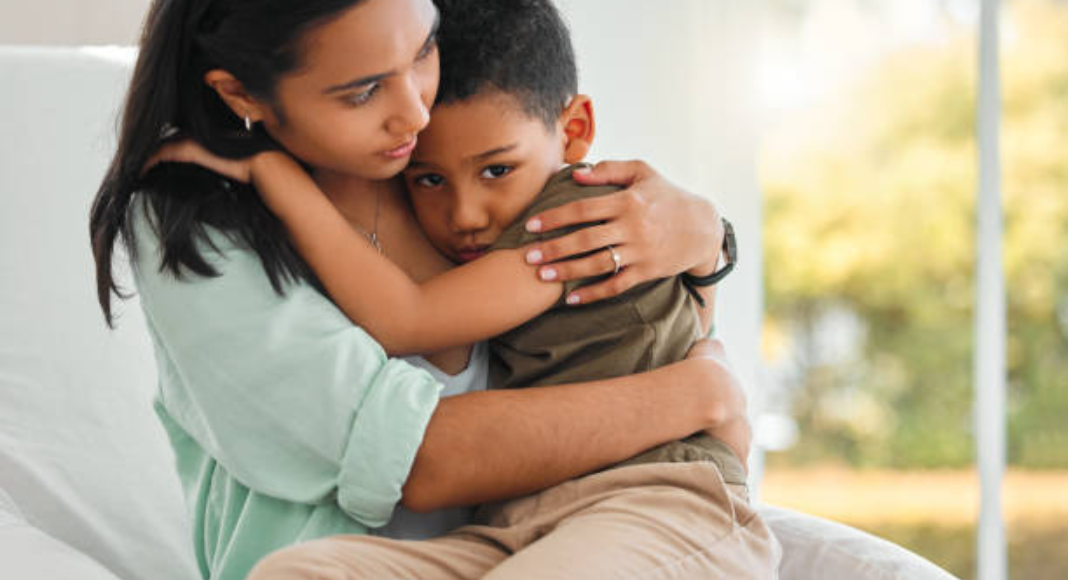 For as long as I can remember, I have struggled with anxiety and depression. The earliest memories I have is telling my parents I felt sad and I didn’t know why. The next memory that stands out was when I was in college and found myself in gridlock traffic; all of a sudden, I felt like I had a weight on my chest and I could not breathe. I later came to understand that I had suffered from a panic attack. I might be dating myself here, but during my adolescent and preteen years, mental health was just starting to emerge as a topic that wasn’t considered taboo. I saw a couple different therapists before the age of eighteen, and I also saw someone while I was in college who made a world of difference in the way I began to train my brain to deal with the anxiety, worry, and depressive thoughts.
For as long as I can remember, I have struggled with anxiety and depression. The earliest memories I have is telling my parents I felt sad and I didn’t know why. The next memory that stands out was when I was in college and found myself in gridlock traffic; all of a sudden, I felt like I had a weight on my chest and I could not breathe. I later came to understand that I had suffered from a panic attack. I might be dating myself here, but during my adolescent and preteen years, mental health was just starting to emerge as a topic that wasn’t considered taboo. I saw a couple different therapists before the age of eighteen, and I also saw someone while I was in college who made a world of difference in the way I began to train my brain to deal with the anxiety, worry, and depressive thoughts.
Therapy, combined with medication, made a world of difference and to this day, I am proudly on anti-anxiety meds and see a therapist occasionally.
There was a period of time in which I questioned whether I wanted to have children because I was afraid of bringing a child into the world who might inherit my DNA along with all of my mental health struggles. I didn’t want that for my child(ren). I eventually changed my mind, as evidenced by my two children, but the concern about my daughter’s preteen and teenage years was always on my mind. That’s right; I was primarily concerned about my daughter’s mental health, not my son’s. This may not come as a surprise, especially since I’ve already mentioned my struggles with severe anxiety, but I constantly worried about whether my daughter would experience the same challenges.
This is why, when my eight-year-old son began complaining of stomach aches about five months ago, I didn’t even consider that it might be related to an anxiety disorder. I attributed it to him inheriting my DNA, which in this case wasn’t exactly desirable. Since I also suffer from IBS, I assumed he was experiencing similar issues. I took him to a gastroenterologist where they ran an allergy scratch test and various lab tests, all of which came back normal. He then started football over the summer. There was an unfortunate incident where my son witnessed another teammate get sick and throw up at practice. From that moment on, my son refused to participate in his practices, citing he didn’t feel well.
Then, I came to understand that it was not an intestinal issue such as IBS causing his stomach upset, but rather him describing that he felt like he had to throw up. My husband would take him to the majority of his practices, though one day I took him; my son kept coming over to me in tears saying he didn’t feel well, so I packed him into the car where he proceeded to have a breakdown very similar to what I had experienced in college all those years ago.
And then it hit me like a ton of bricks: my son was anxious…not my daughter.
This theory was further proven when school started and he could not make it out of my classroom to head to his own in the mornings. Full-on panic attacks and hysterics about him not feeling well, his stomach hurting, and him not wanting to go to school. This went on for about two weeks, with my husband and I at a loss, and me feeling guilty and frustrated by not knowing what to do. I fully believed this was a phase and he would get over it.
I tried a reward system, prizes, breathing techniques, and other things I thought would help him get back to being my carefree, fun-loving boy. But I soon realized I was in over my head and had to seek help. I started in my school building where I have been blessed with compassionate and caring people who were there for me when I did not know what else to do to help my child. I also still wondered if there was a GI disorder and whether he really did in fact have stomach aches due to it. So we went on to have more tests, scans, and even a scope to rule everything out medically while at the same time, looking into getting my child in to speak with a therapist specializing in adolescents with anxiety.
Needless to say, all the tests came back normal. The one thing that came out of it is the knowledge that he has a slight lactose intolerance, which is a problem I can work with. There are many solutions that are easily attained in order to alleviate any discomfort he might be experiencing from that aspect of his stomach problems. We also still have him seeing someone who is helping him with the cognitive part of his stomach troubles, which I now understand stem from his nervousness and worries. He now has tools that he is learning to use when he starts to worry about something or feels scared or nervous. My husband and I are also learning how to parent him in a way that helps him be successful with his anxiety. He is making remarkable strides and is now able to recognize why he is feeling the way he is and how to cope with those feelings. He’s still little and all of these big feelings he was having were not only causing him worry, but also affecting him physically.
I mention all of this in order to highlight that as a society we still struggle to acknowledge that boys and men can experience feelings of sadness and can face the same mental health challenges as women. I admit that I am guilty of this as I never imagined that my son would be the one to face anxiety instead of my daughter. I am focusing on the positive in this: I was able to recognize what was going on with my son, and my husband and I have taken steps to help him, and he is improving!

















